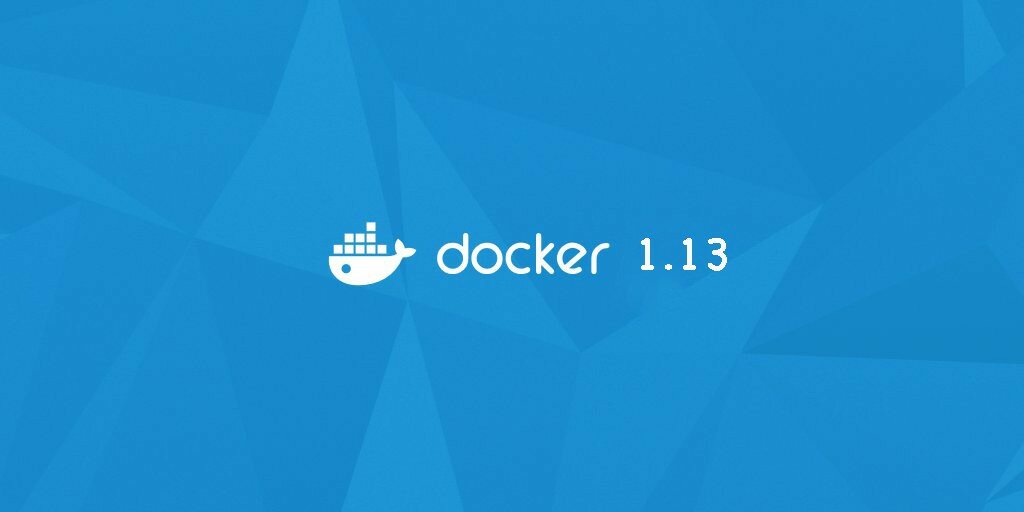Deploying Docker Compose Services in a Swarm
The newest version of Docker Compose comes with enhanced multi-host support. With the addition, you can have stateful services running in containers.
Join the DZone community and get the full member experience.
Join For FreeDocker 1.13 introduced a new version of Docker Compose. The main feature of this release is that it allows services defined using Docker Compose files to be directly deployed to Docker Engine, enabled with Swarm mode. This enables simplified deployment of multi-container applications on multi-host setups.
This article will use a simple Docker Compose file to show how services are created and deployed in Docker 1.13.
Here is a Docker Compose v2 definition for starting a Couchbase database node:
version: "2"
services:
db:
image: arungupta/couchbase:latest
ports:
- 8091:8091
- 8092:8092
- 8093:8093
- 11210:11210
This definition can be started on a Docker Engine without Swarm mode with:
docker-compose up
This will start a single replica of the service define in the Compose file. This service can be scaled with:
docker-compose scale db=2
This works fine on a single host. But if swarm mode is enabled on Docker Engine, then it shows this message:
WARNING: The Docker Engine you're using is running in swarm mode.
Compose does not use swarm mode to deploy services to multiple nodes in a swarm. All containers will be scheduled on the current node.
To deploy your application across the swarm, use `docker stack deploy`.
Swarm mode allows you to create a cluster of Docker Engines. With 1.13, the docker stack deploy command can be used to deploy a Compose file to Swarm mode. Docker Compose gives us multi-container applications, but the applications are still restricted to a single host. And that is a single point of failure.
Here is a Docker Compose v3 definition:
version: "3"
services:
db:
image: arungupta/couchbase:latest
ports:
- 8091:8091
- 8092:8092
- 8093:8093
- 11210:11210
As you can see, the only change is the value of the version attribute. There are other changes in Docker Compose v3. Also, read about different Docker Compose versions and how to upgrade from v2 to v3.
Enable swarm mode:
docker swarm init
Deploy the services defined in Compose file:
docker stack deploy --compose-file=docker-compose.yml couchbase
Other nodes can join this Swarm cluster, and this would easily allow us to deploy the multi-container application to a multi-host as well. A default value of Compose file here would make the command a bit shorter. #30352 should take care of that.
A list of services running can be verified using the docker service ls command:
ID NAME MODE REPLICAS IMAGE
05wa4y2he9w5 couchbase_db replicated 1/1 arungupta/couchbase:latest
The list of containers running within the service can be seen using the docker service ps command:
ID NAME IMAGE NODE DESIRED STATE CURRENT STATE ERROR PORTS
rchu2uykeuuj couchbase_db.1 arungupta/couchbase:latest moby Running Running 52 seconds ago
In this case, a single container is running as part of the service. The node is listed as moby , which is the default name of Docker Engine running using Docker for Mac.
The service can now be scaled with:
docker service scale couchbase_db=2
The list of containers can then be seen again as:
ID NAME IMAGE NODE DESIRED STATE CURRENT STATE ERROR PORTS
rchu2uykeuuj couchbase_db.1 arungupta/couchbase:latest moby Running Running 3 minutes ago
kjy7l14weao8 couchbase_db.2 arungupta/couchbase:latest moby Running Running 23 seconds ago
Note that the containers are given the name using the format <service-name>_n. Both the containers are running on the same host.
Also note that the two containers are independent Couchbase nodes and are not configured in a cluster yet. This has already been explained in the article Couchbase Cluster using Docker and a refresh of the steps is coming soon.
A service will typically have multiple containers running spread across multiple hosts. Docker 1.13 introduces a new command, docker service logs <service-name>, to stream the log of services across all the containers on all hosts to your console. In our case, this can be seen using the command docker service logs couchbase_db and looks like:
couchbase_db.1.rchu2uykeuuj@moby | ++ set -m
couchbase_db.1.rchu2uykeuuj@moby | ++ sleep 15
couchbase_db.1.rchu2uykeuuj@moby | ++ /entrypoint.sh couchbase-server
couchbase_db.2.kjy7l14weao8@moby | ++ set -m
couchbase_db.2.kjy7l14weao8@moby | ++ sleep 15
couchbase_db.1.rchu2uykeuuj@moby | Starting Couchbase Server -- Web UI available at http://:8091 and logs available in /opt/couchbase/var/lib/couchbase/logs
couchbase_db.1.rchu2uykeuuj@moby | ++ curl -v -X POST http://127.0.0.1:8091/pools/default -d memoryQuota=300 -d indexMemoryQuota=300
couchbase_db.2.kjy7l14weao8@moby | ++ /entrypoint.sh couchbase-server
couchbase_db.2.kjy7l14weao8@moby | Starting Couchbase Server -- Web UI available at http://:8091 and logs available in /opt/couchbase/var/lib/couchbase/logs
. . .
couchbase_db.1.rchu2uykeuuj@moby | ++ '[' '' = WORKER ']'
couchbase_db.2.kjy7l14weao8@moby | Content-Type: application/json
couchbase_db.1.rchu2uykeuuj@moby | ++ fg 1
couchbase_db.2.kjy7l14weao8@moby | Content-Length: 152
couchbase_db.1.rchu2uykeuuj@moby | /entrypoint.sh couchbase-server
couchbase_db.2.kjy7l14weao8@moby | Cache-Control: no-cache
couchbase_db.2.kjy7l14weao8@moby |
couchbase_db.2.kjy7l14weao8@moby | ++ echo 'Type: '
couchbase_db.2.kjy7l14weao8@moby | ++ '[' '' = WORKER ']'
couchbase_db.2.kjy7l14weao8@moby | ++ fg 1
couchbase_db.2.kjy7l14weao8@moby | {"storageMode":"memory_optimized","indexerThreads":0,"memorySnapshotInterval":200,"stableSnapshotInterval":5000,"maxRollbackPoints":5,"logLevel":"info"}Type:
couchbase_db.2.kjy7l14weao8@moby | /entrypoint.sh couchbase-server
The preamble of the log statement uses the format <container-name>.<container-id>@<host>. And then, tye actual log message from your container shows up.
At first glance, attaching the container id may seem redundant. But Docker services are self-healing. This means that if a container dies, then the Docker Engine will start another container to ensure the specified number of replicas at a given time. This new container will have a new id. And thus, it allows us to attach the log message from the right container.
So a quick comparison of commands:
| DOCKER COMPOSE V2 | DOCKER COMPOSE V3 | |
|---|---|---|
| Start services | docker-compose up -d |
docker stack deploy --compose-file=docker-compose.yml <stack-name> |
| Scale service | docker-compose scale <service>=<replicas> |
docker service scale <service>=<replicas> |
| Shutdown | docker-compose down |
docker stack rm <stack-name> |
| Multi-host | No | Yes |
Published at DZone with permission of Arun Gupta, DZone MVB. See the original article here.
Opinions expressed by DZone contributors are their own.


Comments